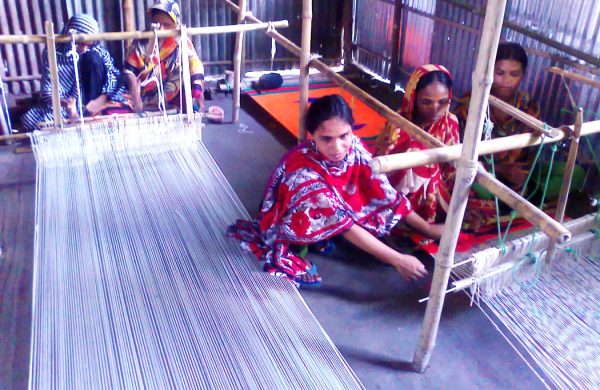Duck farming gains ground in Netrakona haors
- Update Time : Sunday, September 14, 2025

Netrakona Correspondent:
During the monsoon season, young people in the haor regions of Netrakona are becoming self-reliant by engaging in low-cost duck farming.
The growing interest in duck farms is also creating an alternative source of employment for the district’s rural youth.
In this agriculture-based region, Boro and Aman paddy grow in abundance. But when farming activities come to a halt during the monsoon, most people in the haor areas depend on fishing in the open waters of rivers, canals, and beels.
As not everyone succeeds in fishing, many youths are now turning to duck farming in the vast stretches of haor waters, rearing ducks for six to eight months at a time.
Ducks grow quickly on natural food, reducing the need for costly feed. The open waters and vast crop fields of the haor are proving to be ideal for rearing, which not only generates employment but also helps meet local demand for eggs and meat, said officials.
Among the district’s 10 upazilas, Madan, Mohanganj, and Khaliajuri are completely haor areas, while Kalmakanda, Barhatta, Atpara, and others have low-lying lands that also create a favourable environment for duck farming during the monsoon.
Mohsin Mia, a duck farmer from Uradighi village in Raypur Union, said he and two friends started a farm with 2,500 ducks, which now lay 1,900-2,000 eggs daily.
“Before the harvest, we need to provide some additional feed, but it’s still very low compared to other farming costs,” he said.
Farmer Nur Kamal of Kalmakanda said, “I spend most of my time managing the farm, but I can’t handle it alone. I have three permanent workers, and sometimes I need to hire a few extra hands. Rearing 4,000 ducks is not easy, but it has created employment opportunities for at least three more people.”
Homemaker Jamila Khatun of Jahangirpur village in Sadar upazila said, “I rear ten ducks at home. Since I cannot afford to buy fish and meat, the eggs and meat from these ducks help meet my family’s food needs.”
There are 1,009 government-registered duck farms in the district, said District Livestock Officer Md Shahidullah.
“Beyond that, we estimate there are more than 5,500 unregistered small and large farms. Together, these farms are directly creating employment for at least 10,000 people.”
District Livestock Office Additional Director Sadikul Islam said, “Duck farming is essential to meet the district’s demand for eggs. Duck meat also plays an important role in meeting local meat demand. We provide guidance and support to small-scale farmers to ensure production continues smoothly.”
















